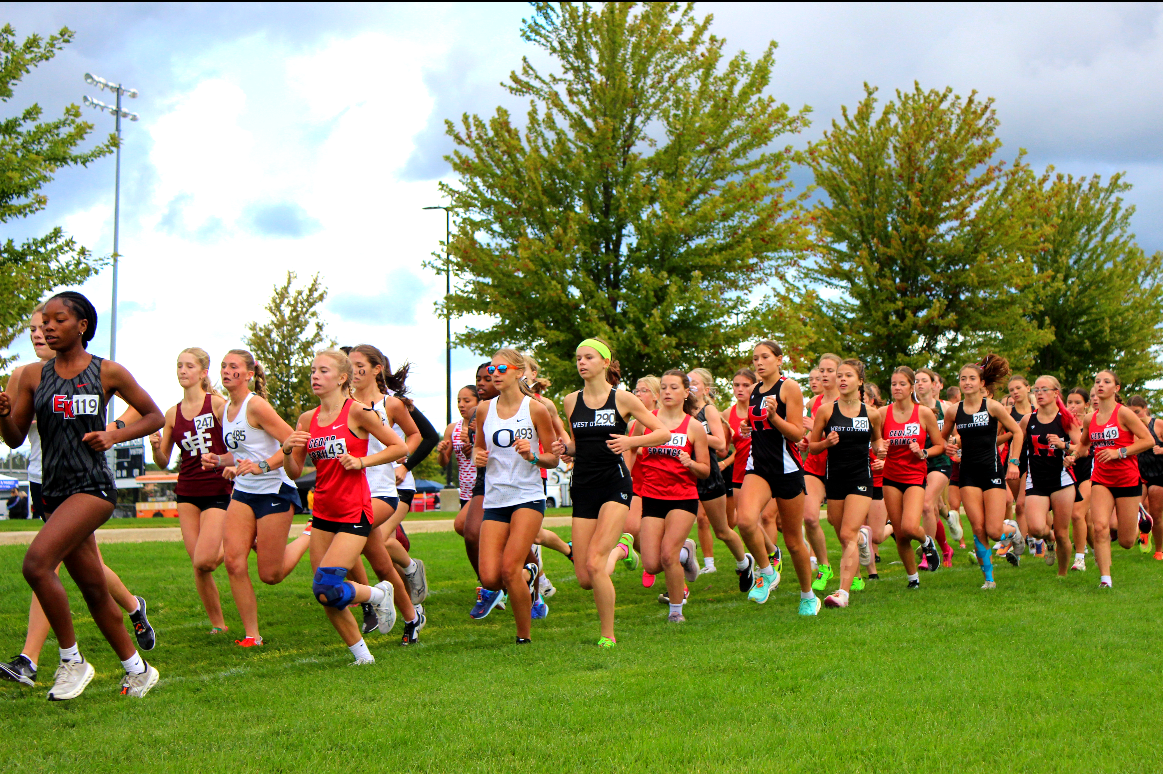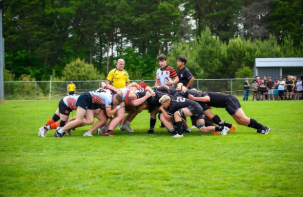Injuries, toxic environments, and pushing past the breaking point. Is this your first thought when you think of gymnastics? Or is it the beautiful sparkling leotards, the classic bun, the flawless flips, and the perfectly pointed toes? I’m guessing you might have thought of the second choice. Gymnastics seems so perfect, but what is shown on the surface is never the whole story. What some people fail to realize is how exhausting the sport can be in all aspects, from physical, mental, and emotional states to the gymnasts’ social lives. That being said, if and when you become a parent, I would advise you to avoid gymnastics when picking a sport for your child.
“Harder, Better, Faster, Stronger.” Every Gymnast has to stay focused on this statement for their entire career if they want to be great. An NBC Sports Journal written about the Women’s Olympic Gymnastics Team, states “Six hours a day. Six days a week. Week after week. Year after year. Usually for as long as their bodies- not to mention their brains- can take it”. The best of the best had to work incredibly hard to get to the top, and once they got there, the work never stopped. The better a gymnast they become, the more challenging the sport is. Imagine how exhausting this would be, pushing themselves through each practice, knowing they have to give it their all today, tomorrow, and always. Although going through challenges is a part of building character, there is a certain point at which it becomes too much for one person. Would you want your child feeling like it’s too much, endlessly pushing and pushing themselves? At what point would they break?
Even at the high school level, gymnastics is shockingly demanding. Jr. Emmalyn Angel, who had been doing gymnastics for twelve years, had practice four hours a day, four days a week during the school year and four and a half hours a day, five days a week in the summer. “We got at most two minutes for a water break after every event during practice and no time for a snack… We had conditioning after each event and another 30-45 minutes of conditioning after practice. We were not able to stop and if we messed up, we started over. It was very physically and emotionally draining…It took up so much time and we had so much pressure to be perfect.” Even though the sport gets harder the better a gymnast they become, it does not deny the fact that gymnasts have to work day in and day out, no matter the level. Of course, all sports require hard work and dedication, but the intensity and commitment required to be a gymnast, even at younger ages, maybe a concern to some parents.
Other than the questionable workload, the sport as a whole involves increasingly challenging techniques that require forceful loading and turning of joints, and because most gymnasts are involved in intense year-round training, this leads to injuries. With the repetitive pounding and pressure of their joints that come with each practice and competition, how could gymnasts not get injured all of the time? They are constantly pushed to their limits, and because of this, their bodies break down. With every sport, there is a risk of injury, but it is especially prominent with gymnastics.
Not only do they get injured all the time, but it is also very common for them to practice and compete while injured. Hope College Jr. Morgan Raymond did gymnastics up until her senior year of High School, talked about the last state meet of her gymnastics career. “I was warming up on the vault, landed short, and sprained my ankle really bad. It may have been broken… Essentially my only choice was to get it taped up, try to ice it, and then try to compete on it the rest of the meet… to at least have a shot at making it to regionals”.
Raymond had to compete on her injured ankle, risking further damage, to get the chance to compete at what could have been her last meet. It may be understandable to compete on an injury due to Raymond’s circumstance, but practicing/ competing while injured is all too common for gymnasts. Isabel Camarota, a level eight gymnast, talked about the prevalence of practicing through injuries “ It is not uncommon to practice or compete through minor injuries. If you have major injuries, gymnasts still tend to go to practice and condition…When I was around ten, I competed on a sprained ankle. Last year I had a foot injury that I both competed and practiced on.” Angel, who had been doing gymnastics up until level eight said “I had a stress fracture in my back for the whole level eight years. Even though I was advised by my doctor to let it heal, I still ended up competing and practicing with it…. Gymnastics is a very demanding sport and there is so much pressure to be great”.
Similarly, Elaina Dishinger, who is going on her twelfth year of gymnastics said “I hurt my back on vault… I had a stress fracture in my arm as well as my wrist from repetitive and pounding movement. I competed and practiced with both stress fractures”. As you can tell, it is very common for gymnasts at many different levels to continue their training while injured. Remaining a gymnast means they have to stay focused on being “better, faster, stronger”, so pushing through an injury is better than not making any progress in their minds.
Although you may think that it’s a choice to continue training when injured, it really isn’t. In the world of gymnastics, resting means the gymnasts aren’t improving, which means they are getting left behind. In gymnastics one truth is certain, getting left behind isn’t an option, plain and simple. Therefore, they are required to push through the pain in order to stay on top of their game.
On top of the athletes being physically and mentally pushed, gymnasts have to dedicate so much of their time to their sport. Camarota said, “ I feel that gymnastics is demanding because of the time and commitment it requires. It can be hard to do other things while in gymnastics”. Because gymnasts spend most of their time at the gym, they don’t have a lot of time to hang out with their friends, spend time with their family, or do other activities. Their social lives are completely tarnished, as their lives are planned around and focused on, that’s right, gymnastics.
So, do you now realize that the mesmerizing stunts and shiny bows may have distracted you from the harsh truth of gymnastics? It’s alright, as it does for many people. Everything may seem so perfect, but behind the scenes, gymnastics is far from it. To be quite frank, gymnastics will only ever be the right choice for your child if you are willing to sacrifice their overall well being and happiness.













